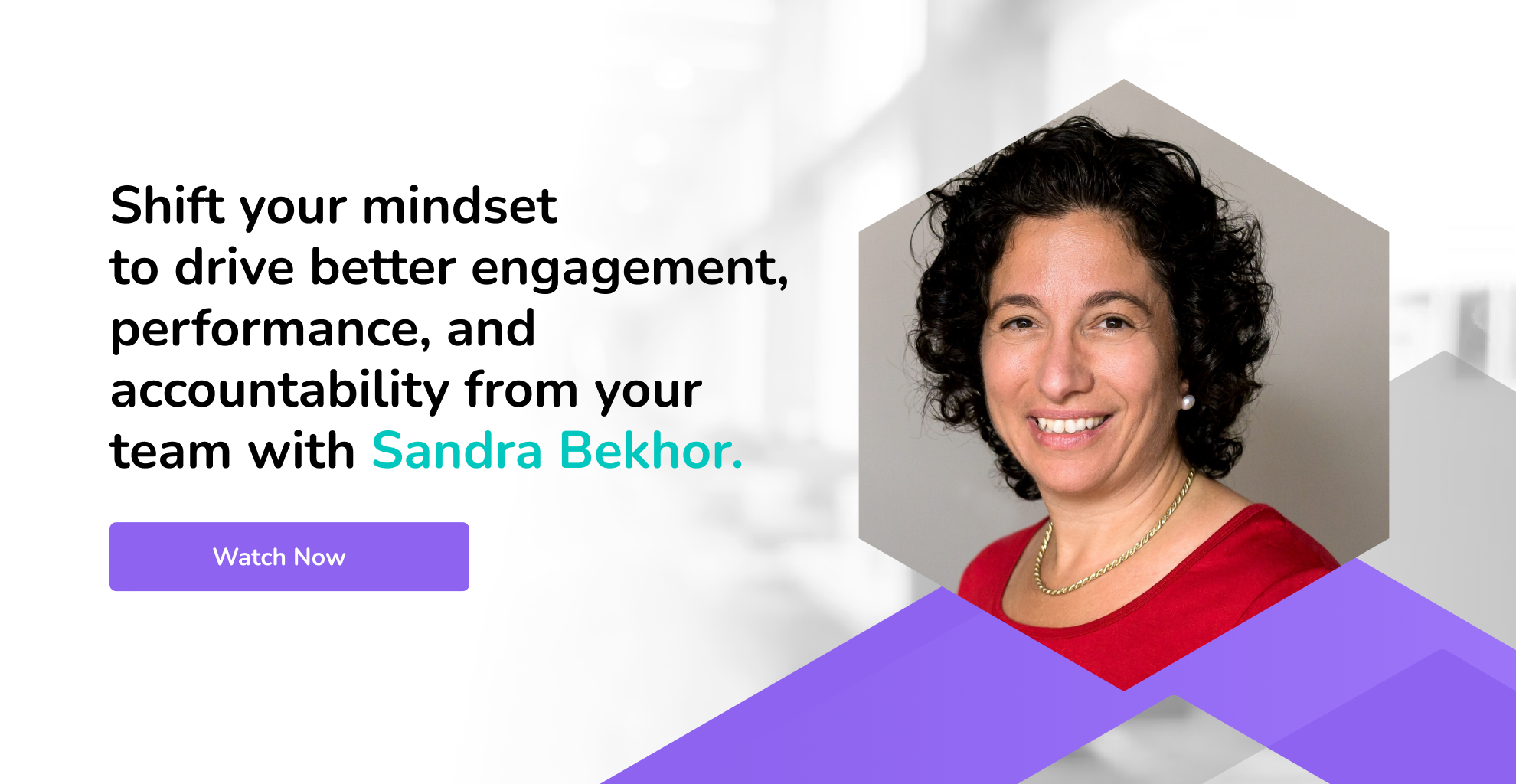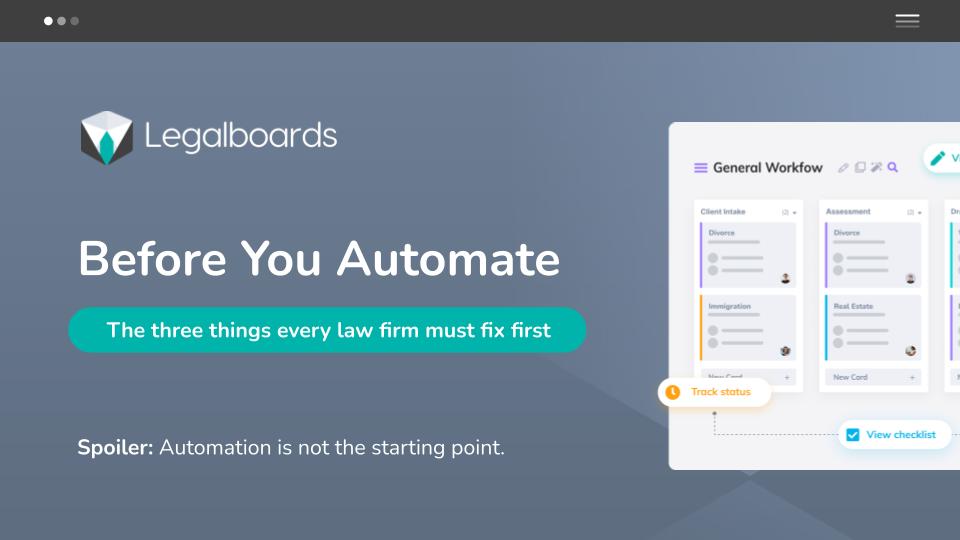Thank you to everyone who joined us for the fantastic 30-Minute Webinar: Shift Your Mindset to Drive Better Engagement, Performance & Accountability – watch the recording now.
When Your Team Has Potential, But the Performance Isn’t There
If you’ve ever looked around your office and thought, “We could be doing more,” you’re not alone. Maybe your paralegals are overwhelmed and missing details. Maybe your junior associates are checking tasks off without thinking ahead. Or maybe you’re just tired of being the only one keeping the ball rolling.
These signs often point to the same root cause, not a lack of skill, but a lack of structure, communication, and ownership.
Here’s the good news: it’s fixable not just by throwing in new KPIs or hiring more people, but by shifting how you lead. With the right mindset (and the right systems), you can guide your team to manage themselves better, take more ownership, and show up more consistently.
Help Your Team Manage Their Priorities, Without Micromanaging
Let’s start with a mindset shift: you’re not managing tasks. You’re managing clarity.
Your team doesn’t just need to do the work; they need to know why it matters, what to prioritize, and how you’ll review progress. That starts with giving them tools to manage their list while still staying aligned with yours.
Let’s start with a mindset shift: you’re not managing tasks. You’re managing clarity.
In many firms, teams get stuck not because of the workload itself, but because they aren’t sure what to prioritize or how their work fits into the bigger picture. When priorities shift without notice or aren’t communicated clearly, confusion and delays follow.
One way to support better performance is to make work visible. Some firms utilise visual workflows or task boards to map out legal matters, breaking them down into stages, assigning deadlines, and clearly defining ownership. When team members can see what’s in progress and what’s expected next, they’re more likely to manage their workload effectively and stay aligned without constant oversight.
This kind of visibility can also reduce the need for repeated check-ins or status meetings. Rather than tracking progress through emails or verbal updates, everyone can refer to the same shared view of the matter.
Want to stay in the loop without chasing updates? Use Legalboards’ activity tracking and checklist features to keep priorities front and center, so nothing gets lost.
Related Reading: The Rise of Legal Automation: Streamlining Workflows for Efficiency and Growth
Delegate for Impact: Not Just Output
Delegation isn’t just assigning tasks; it’s setting your team up for success.
Here’s where most leaders get stuck: they delegate what needs to be done, but not what success looks like. When expectations are unclear, you get half-finished work, repeated mistakes, or endless re-dos.
Too often, tasks are assigned without enough context or clarity. This leads to confusion, delays, or results that fall short of the mark.
Delegating effectively means matching the task to the right person, clearly defining what a good outcome looks like, and making space for questions along the way.
In legal practice, this might look like providing a junior associate with a precedent document, outlining the objective of a client letter, or clarifying the expected timeline for a research task.
Attaching relevant materials and explicitly stating the desired outcome makes it easier for team members to take ownership, without needing to ask for clarification afterwards.
When expectations are clear and well-supported, people feel more confident, which in turn builds trust. Done poorly, delegation can lead to bottlenecks and rework. Done thoughtfully, it strengthens communication, accountability, and team performance.
Turn Feedback into Growth: Not Frustration
When performance lags, the default response is often frustration. But what if the problem isn’t their attitude, it’s the lack of coaching?
Recognition and feedback aren’t “nice to have.” They’re the fuel for professional growth. Legal professionals, especially in smaller firms, often don’t get the structured mentorship or reviews they’d benefit from.
Try replacing disappointment with structured feedback. Praise what works. Tackle what doesn’t, honestly but constructively.
Clear communication and documentation of work in progress, such as tracking status updates, keeping a record of comments or decisions, and maintaining a matter history, can help identify where something went off track.
When issues arise, having this context allows you to address problems constructively and use them as learning opportunities, rather than assigning blame.
Want to set formal goals? Use Legalboards’ integration with your practice management tools to create workflows that reflect quarterly goals or recurring reviews, helping you coach to specific outcomes, not just vague impressions.
Related Reading: Optimizing Law Firm Operations with Workflow and Automation
Make Goal-Setting a Team Sport: Not a Solo Task
Most performance issues stem from mismatched expectations. Instead of annual reviews that feel like a surprise, shift to shorter cycles with shared goals.
Ask yourself:
- Do your team members know what success looks like this month?
- Are they clear on what’s expected by next Friday?
One way to support consistent follow-through is to make short-term goals visible and specific, such as “submit first draft of motion by Tuesday” or “review disclosure by end of week.” When goals are clearly tied to matter workflows and regularly reviewed, it becomes easier for everyone to stay on track.
This kind of structure helps build a culture of alignment and accountability, not because someone is micromanaging, but because expectations are shared and progress is transparent.
Related Reading: How Legalboards Transformed Law Firm Operations
A Simple Challenge to Try This Week
Choose one goal for your team this week. Something simple, but tangible.
Maybe it’s “complete all intake reviews by Thursday.” Or “submit a daily update on litigation files.” Then, make it visible. Track it. Talk about it.
Small steps can spark big change, especially when your team sees that you’re committed to clarity, not just control.
Ready to Lead with Confidence? If any of this resonates, whether you’re dealing with low engagement, unclear ownership, or stalled performance.
📌 Presented by: Sandra Bekhor, MBA
📅 Recorded live on: June 26, 2025
📍 Hosted by: Legalboards – Legal Workflow Automation
You’ll learn how to:
- Shift your mindset and lead more effectively.
- Set clear, measurable goals with your team.
- Use Legalboards to support your delegation and reviews.
- Coach your team toward growth, without micromanaging.







